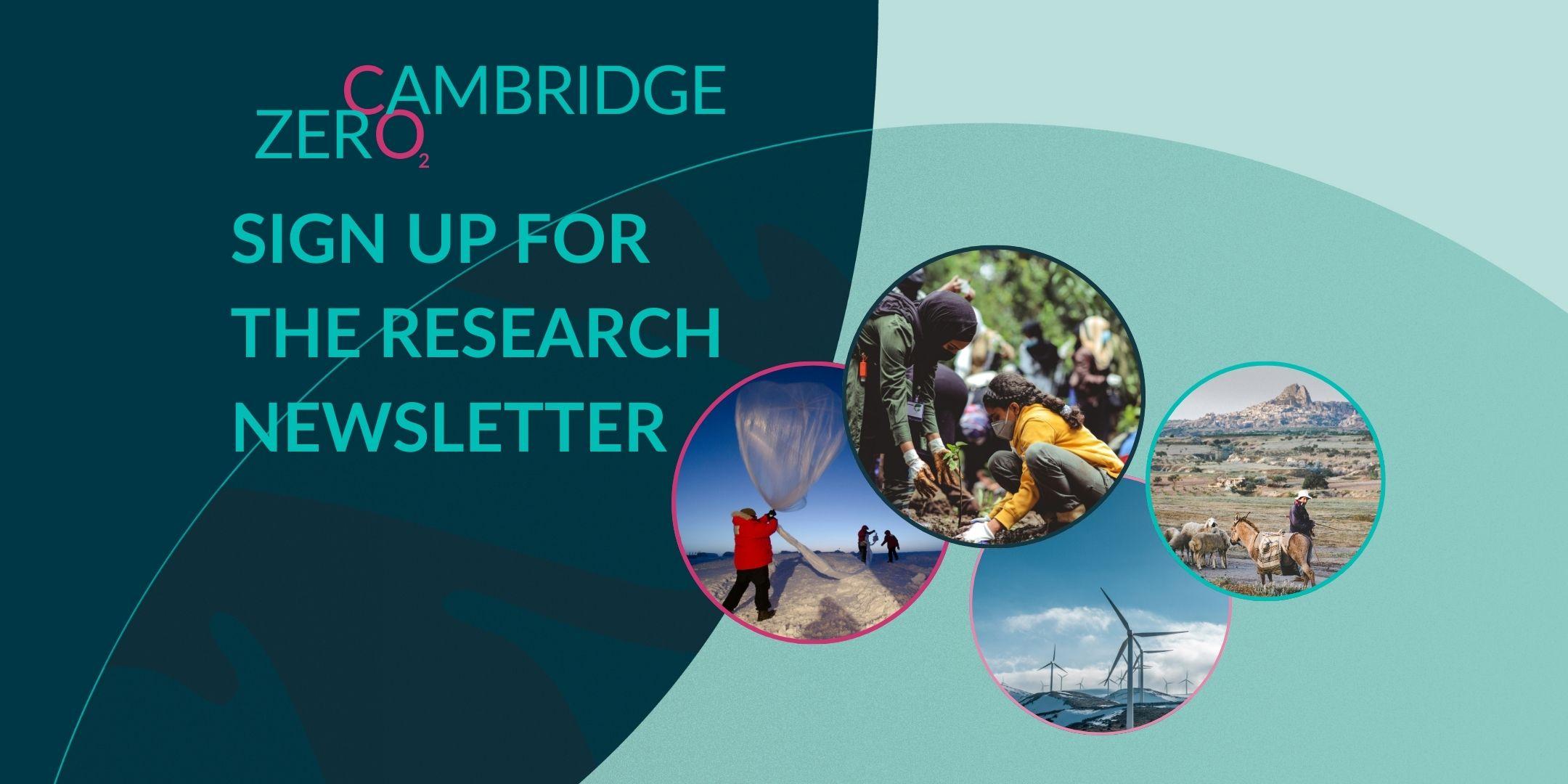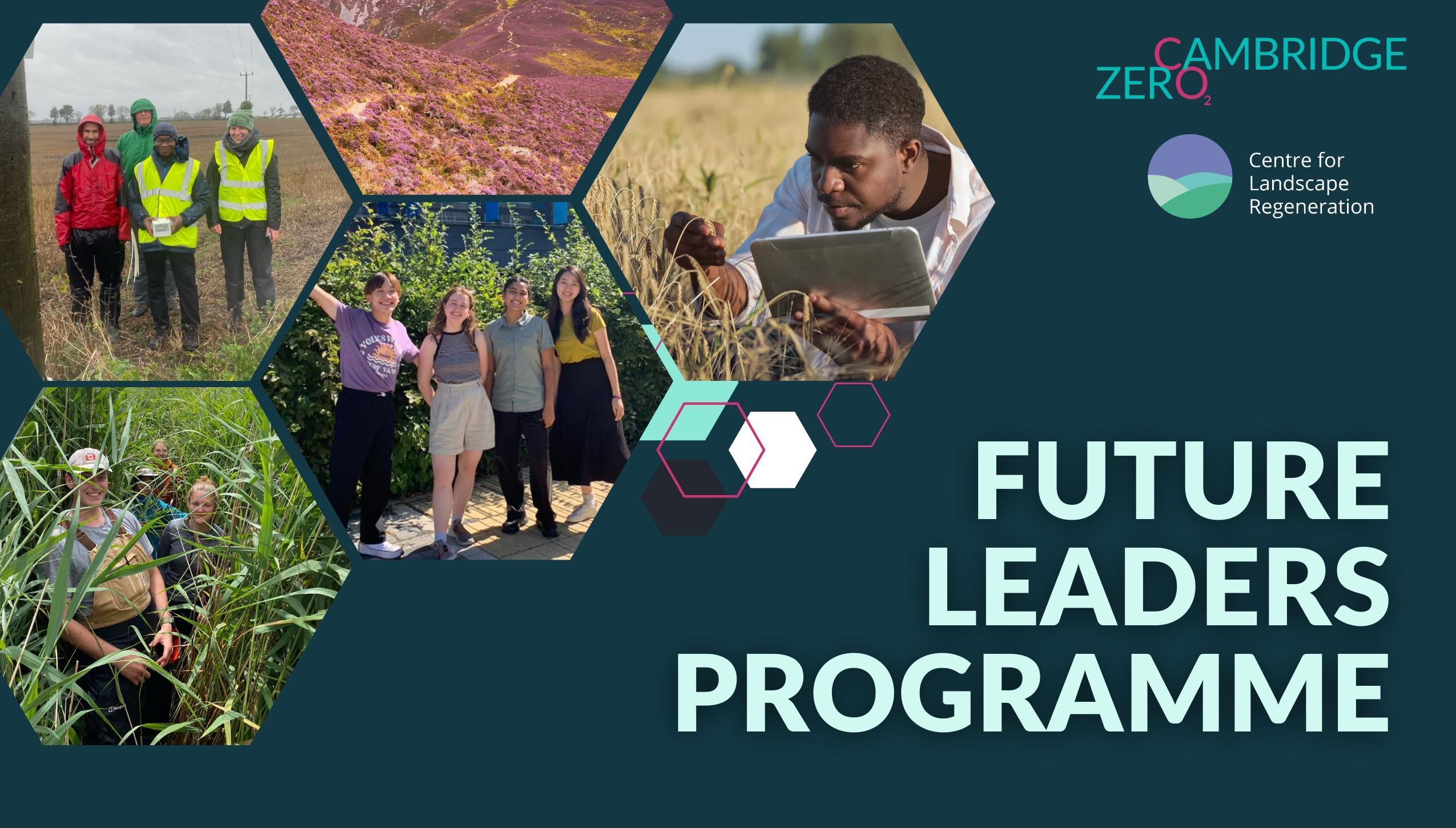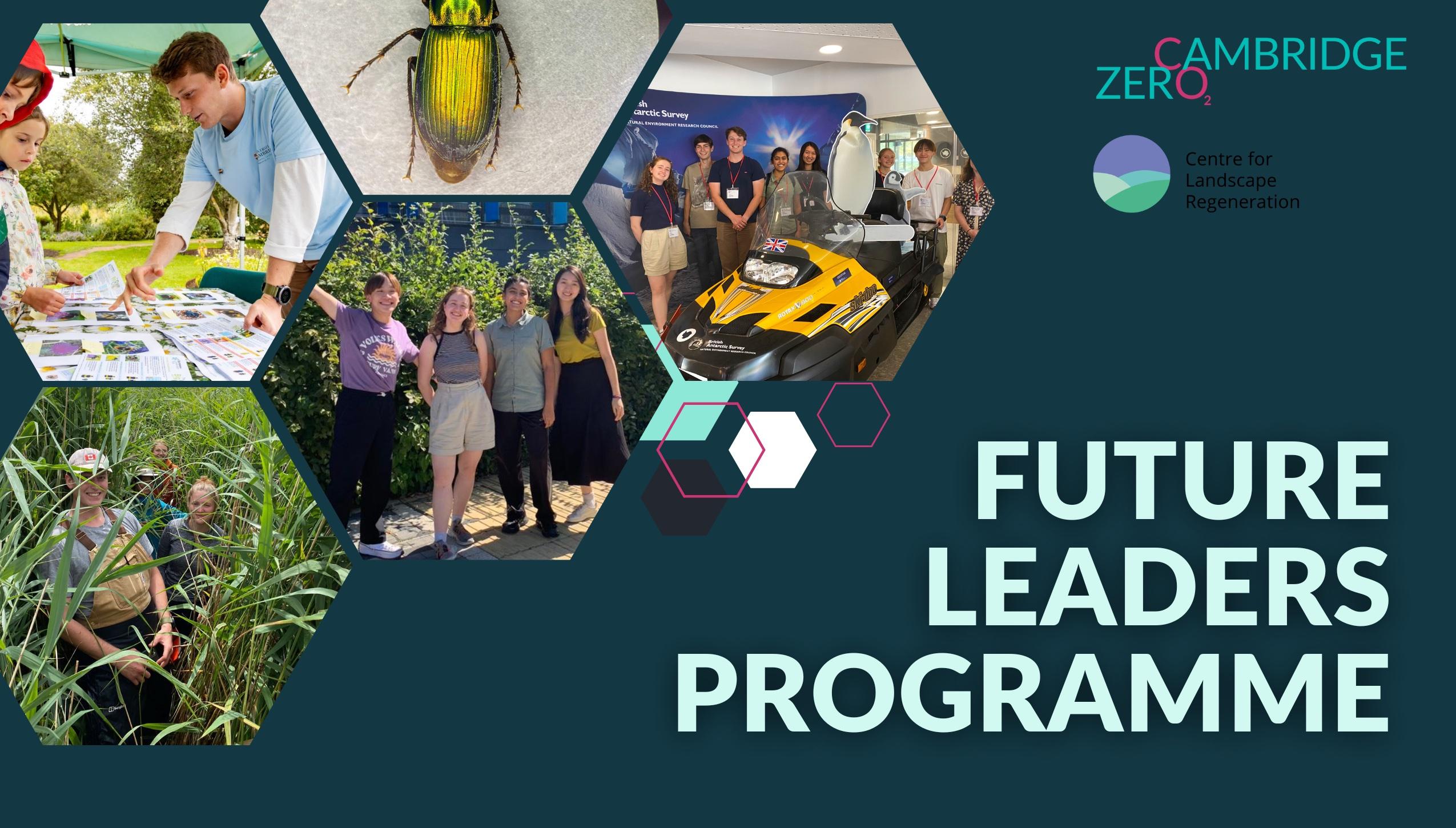Over the course of a November fortnight, Cambridge students were among the strong Youth contingent which descended on Glasgow for the 2021 United Nations Climate Change Conference, COP26. They represented the breadth of the student body, with early year undergraduates alongside PhD students taking to the conference halls and Glasgow streets. Of those in attendance, a sample have spoken to Cambridge Zero about their experiences, sharing their reflections on the conference and the final agreement.
Students arrived in Glasgow with a diverse array of hopes and expectations for the conference. Although she was not sure what to expect, Natural Sciences undergraduate Rosa Prosser writes that she thought, 'maybe naively', the conference could be 'a turning point in our history'. Law Masters student Linda Muhugusa says that going into COP26, she wasn’t expecting that a single conference could solve the climate crisis particularly as such international conferences reach agreement by consensus - making it hard for them to enlist required change.
This nuanced reading of what the conference achieved relative to its scope was reflected in many students’ thoughts on the final agreement. Qintian Yao (Geography MPhil) also raised the difficulty of country co-operation, conceding pragmatically that ‘having an agreement is better than nothing’, a sentiment echoed by Lee Masuka (MPhil Engineering for Sustainable Development). Yao ultimately framed the Glasgow pact as ‘not perfect, but acceptable’, noting positive strides in the finalisation of the Paris Agreement rulebook, including Article 6 on carbon markets. To build on COP26’s positive developments, both put heavy emphasis on converting pledges and commitments into ‘concrete action’ (Yao) and ensuring more is done ‘in terms of tracking and meeting commitments’ (Masuka). Both also stressed the value in COP26’s progress in terms of providing a platform for continued forward momentum at COP27. Yao outlined her key priorities moving forward to next year as ensuring NDCs (nationally determined contributions) are updated, climate finance commitment is increased and the phasing down of coal and other fossil fuels is put into accelerated action.
Paris’ 1.5°C warming limit (the implications of which the Intergovernmental Panel on Climate Change outline here) was a recurrent benchmark used to assess the conference. Masuka commented on the good progress of commitments, but evaluated that when these are considered in the context of the time left to limit to 1.5°C warming, more needs to be done and suggests that his degree’s reading and teaching lead him to want greater urgency. This concern was prevalent also for Nick Koenig (MPhil in Anthropocene Studies), who wrote that in the ‘studies and articles I have read, the actions resulting from COP26 are still not vast enough to keep our world under a 1.5 °C increase in global mean temperature’.
Another poignant point of reflection for many students were issues of inclusivity at the conference. Muhugusa outlined some of the key reasons why some smaller states which are the most vulnerable to climate change are erased in official proceedings: richer and more powerful states are able to procure more pavilions in COP26’s Blue and Green zones, send more delegates to negotiations, and better represent and raise the profile of their interests. She also highlights the tendency, seen in Glasgow, for COP negotiations to continue beyond the planned two-week timetable, as a challenge for less affluent states: with less resources to change their delegates’ accommodation and travel plans, they risk missing the opportunity to fight for their interest in the critical last stages, meaning ‘their voices are left invisible’. Yao likewise drew attention to the inequality of the global availability of the COVID-19 vaccine, which makes it harder for developing countries and Small Island Developing States to send representatives to Glasgow, suggesting that the absence and lack of the most vulnerable voices weakens the COP. For Koenig, ‘the Global South and other island nations are still underrepresented at the conference, therefore, the “agreements” are not equitable and just’.
Koenig’s criticism of issues of underrepresentation links to his ‘deep disappointment’ with the large number of fossil fuel delegates, widely reported to be over 500. Prosser likewise felt ‘uncomfortable’ with the ‘very corporate’ Green Zone, suggesting that attending ‘the protest and the activism taking place on the streets of Glasgow heightened the contrast’. This made the conference feel ‘detached’ and like ‘a completely different world’. She emphasises ‘the amazing talks that took place in the Green Zone and the people that have worked so hard to make a difference and are part of COP26’ but thinks ‘it is important to be honest about COP, rather than blindly singing its praises’.
It was at this personal level of their experience in Glasgow that students expressed these broader criticisms of exclusivity, which were felt to be exacerbated by pandemic restrictions. Muhugusa and Yao, both Blue Zone-accredited, were unable to access negotiating rooms and plenaries due to coronavirus restrictions, which prevented them from fulfilling their observer duties. Both emphasised that such measures were necessary to protect people. However, Muhugusa highlighted the potential implications of these limitations: for many of the most coveted conferences, a cap of two delegates per organisation was implemented – a scenario in which delegations are likely to send only the most senior members, likely excluding younger voices alongside other marginalised groups.
Although COP was described as ‘disappointing’, both politically and personally, several students found the experience fulfilling from an academic perspective. Muhugusa described being in an international environment surrounded by a wealth of knowledge as a ‘privilege’, a term also used by Prosser. Masuka likewise commented on appreciating the opportunity to connect with others and observe the different exhibitions. For the first time in its history, the conference was hybrid, with many of its elements open to both in-person and virtual attendees. Muhugusa noted that the virtual element of the Climate Law and Governance Day Academic conference, which she was involved in, enabled people from all over the world to take part, facilitating knowledge sharing and capacity building.
Both Masuka and Yao appreciated the opportunity to see implemented positive changes around Glasgow in the form of electric buses and food labelling including CO2 emissions from production. For Yao, the atmosphere in the conferences zones gave them ‘confidence that global citizens are making collective efforts’ to tackle the climate crisis. Out on the streets, Prosser had a similar experience, on which she wrote: ‘The thing that really gives me hope is seeing the thousands of people who were not invited to COP shout to get their voices heard. These are people, many of them marginalised from society, who are not given a seat at the table. However, they still show up because they care and they demand a better future. This gives me hope!”.
The students of Cambridge are not a homogenous group, and their range of perspectives and reflections on the conference highlight their own personal experiences, alongside offering critical assessments and nuanced appraisals of the international summit and its resulting agreement. Evidently many are already looking to COP27 and considering what can be done to accelerate action on tackling the climate crisis.
Cambridge Zero would like to applaud all the students who attended and engaged with the conference either by travelling to Glasgow or tuning in virtually, and express their gratitude to the many who provided commentary to Cambridge Zero (in addition to those named in this article, notably Friederike Hartz (Geography, PhD) and Kayla Matteucci (Centre for Study of Existential Risk, MPhil)). Cambridge students’ evident drive, passion and commitment suggests there will be no shortage of climate leaders for years to come.



